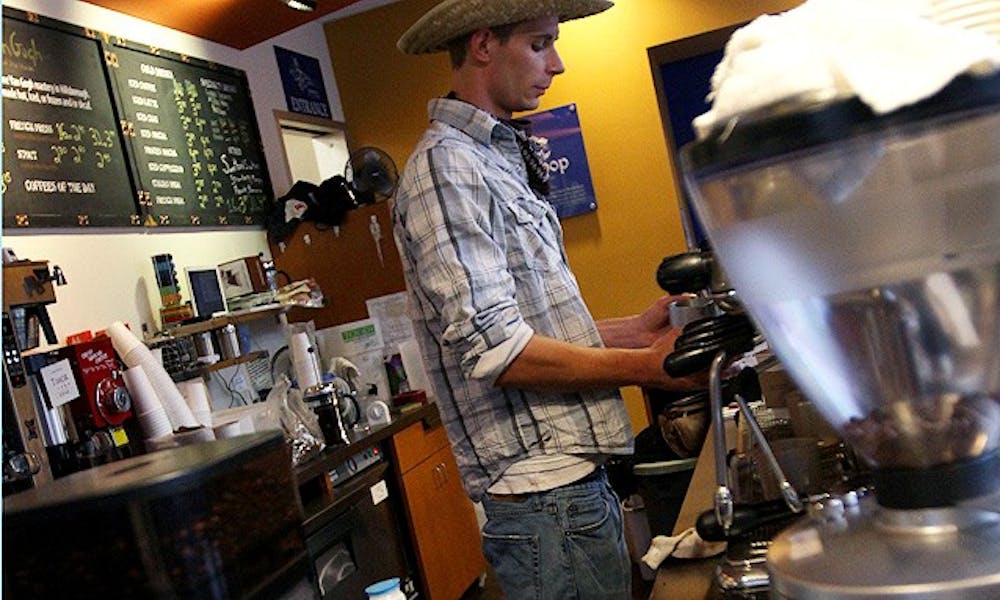Dispelling any negative connotations of the phrase “coffee addict,” a recent local study shows that the substance might increase intelligence.
Scientists have found that caffeine enhances nerve cell connections in the brain—synapses—which are scientifically considered to be the cellular basis for learning. Serena Dudek, a senior investigator in the Neurobiology Laboratory at the National Institute of Environmental Health Sciences in the Research Triangle Park, said that although the findings are notable, the degree to which the study applies to humans is still unclear, given the biological differences between humans and the study’s test subjects: rats.
“Effects of caffeine on memory in humans are obviously subtle,” Dudek said. “If it really made us that much smarter, we’d all be consuming a lot more of it! Although, I joke, there seems to be an awful lot of people who are pretty impaired cognitively and socially before their first cup.”
Dudek’s team found that caffeine improves the efficiency of chemical reactions involving neurons in rats. In the trials, caffeine dramatically increased signalling between neurons in the rats’ brains that is rich in adenosine receptors, which cause drowsiness. Essentially, Dudek said, caffeine takes the spot of adenosine—the chemical causing drowsiness—in these ports, preventing fatigue, increasing energy and improving memory.
She added that human cells may not have the same distribution of receptors as rats, possibly leading to different effects of similarly proportioned dosages. There are, however, enough strong similarities between humans and rodents—often used as test subjects in designing pharmaceuticals—to make such an extrapolation useful and support the notion of caffeine as a positive substance for humans.
“I drink about three cups [of coffee] a day, on average, but don’t consider myself an addict,” Dudek said. “I have no problem giving it up for decaf if I wean myself off, but why [would I]?”
Sophomore Inka Johnson said she drinks approximately five cups of coffee per day, occasionally replacing a cup with a caffeine pill or using energy drinks during high-stress periods.
“Half a caffeine pill is one cup of coffee, so I never take more than half of pill at one time,” Johnson said. “If I drink more than a cup, I just get jittery. Monster energy drinks are my go-to if I need to be more alter for a longer period of time, like during exam week. I know they’re not healthy for me, but sometimes I need them.”
Although she doesn’t necessarily believe that caffeine directly makes her more intelligent, Johnson noted that coffee helps her stay awake and attentive in class.
“If I’m feeling drowsy or easily distracted, I’ll go get a cup of coffee and 15 minutes later I feel more focused,” she said. “Indirectly, it makes you smarter because you can pay attention to what you’re learning in class, but I don’t think it makes me any smarter than I would have been if I had just gotten enough sleep.”
Sophomore Lucy Yin said she drinks tea as a last resort if she is trying to stay awake.
“I don’t think I learn better with caffeine, and it’s better to just get more sleep,” Yin said. “I don’t like drinking too much caffeine before a test because it makes me jittery, but I think a little bit helps me focus.”
Elliot Anderson, a barista at the on-campus Joe Van Gogh, agreed that the most coffee has to offer is the ability to stay awake later or avoid class-induced drowsiness.
“I wouldn’t say caffeine itself makes you more intelligent, it conspires with other elements to do so,” said Max Berry, another Joe Van Gogh barista. “I could see it making you smarter socially—[drinking coffee] is a social activity, which gives you something to do and talk about.”
Get The Chronicle straight to your inbox
Signup for our weekly newsletter. Cancel at any time.

